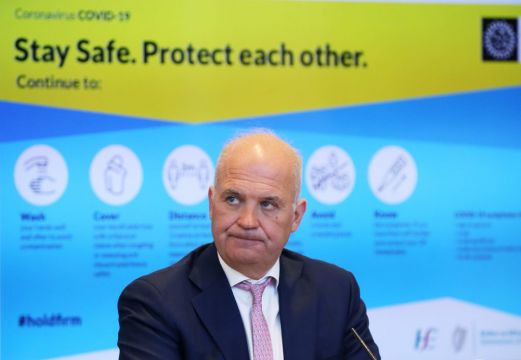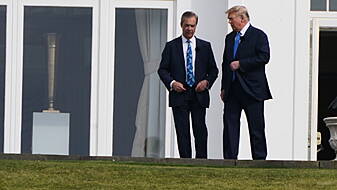The increasing concern regarding the Covid-19 Delta variant has led the Government to delay the reopening of indoor dining, which had been due to take place on July 5th.
When the reopening does go ahead, now set for July 19th, only fully vaccinated people will permitted to eat or drink indoors, with plans underway to create a system to prove vaccination.
In today's announcement, Taoiseach Micheál Martin referenced data supplied to the Government by the National Public Health Emergency Team (Nphet) highlighting the serious threat which Delta poses.
In a letter to Minister for Health Stephen Donnelly dated June 28th, chief medical officer Dr Tony Holohan put forward the group's recommendation to delay the reopening of indoor hospitality, detailing four scenarios which could arise if the planned easing of restrictions went ahead coupled with the Delta variant's increased transmissibility.
In the letter to Mr Donnelly, Dr Holohan said Nphet's projections were based on two "fundamental types of assumption" on indoor social mixing and transmission advantage.
These assumptions were that if the reopening were to go ahead on July 5th, indoor social mixing would increase to a 'moderate level' (similar to late July-early August 2020), or a 'higher level' (similar to late August-early September 2020).
Also, their assumptions regarding transmission advantage were based on either 'conservative estimates', that Delta is 1.55 times more transmissible than the Alpha variant, which was 1.27 more transmissible than the original strain, or 'higher estimates', which increased the transmissibility of Alpha to 1.5, which in turn Delta was 1.6 times more transmissible than.
Scenarios
Nphet first looked at projected Covid cases numbers, hospital admissions, intensive care unit (ICU) admissions and deaths from July 1st-September 30th if there was no Delta variant, estimating 21,000 cases, 405 hospital (55 ICU) admissions and 80 deaths.
Four other scenarios ('optimistic', 'central 1', 'central 2', and 'pessimistic') are then examined, each based on moderate/high levels of indoor social mixing and conservative/higher estimates for Delta's transmissibility.
| Scenario: | Cases: | Hospitalisations: | ICU admissions: | Deaths: |
| No Delta | 21,000 | 405 | 55 | 80 |
| Optimistic | 81,000 | 1,530 | 195 | 165 |
| Central 1 | 187,000 | 3,490 | 450 | 545 |
| Central 2 | 408,000 | 7,690 | 985 | 1,230 |
| Pessimistic | 681,900 | 12,985 | 1,685 | 2,170 |
*Projections from Nphet for July 1st-September 30th.
Dr Holohan explained rises in case numbers across all scenarios would rise very slowly in July, however, "the seeds of future growth are sown at this time, and case counts increase exponentially throughout August".
The letter stated infections would largely occur in young, unvaccinated people, "but as the force of infection grows, a significant number of infections also occur in older, vaccinated people".
Dr Holohan added the optimistic scenario would see 75 per cent of hospitalisations attributed to people under 40, however, 99.9 per cent of the deaths would be people over 40.

Although the incidence of the virus, hospitalisations and ICU admissions have all improved or remained stable over the last number of months despite the gradual easing of restrictions, the letter noted that data from other countries where Delta has become dominant, such as the UK, indicates "the level of transmission here will grow very quickly over the coming weeks".
The CMO highlighted that the health service "continues to be in a fragile position, with a significant backlog of non-Covid care", some vulnerable groups are also still not fully vaccinated, and any surge in case numbers could impact the reopening of schools and colleges in September.
Nphet's recommendations in the letter included limiting indoor 'high-risk' activities to people who have been fully vaccinated or recovered from the virus in the last nine months, the reopening of which should be delayed until "a robust, non-reproducible and enforceable system of verification of vaccination or immunity status can be put in place to support this".
"If this is not deemed feasible, the Government should consider pausing further easing of these measures until such a system can be instituted," the letter stated.







